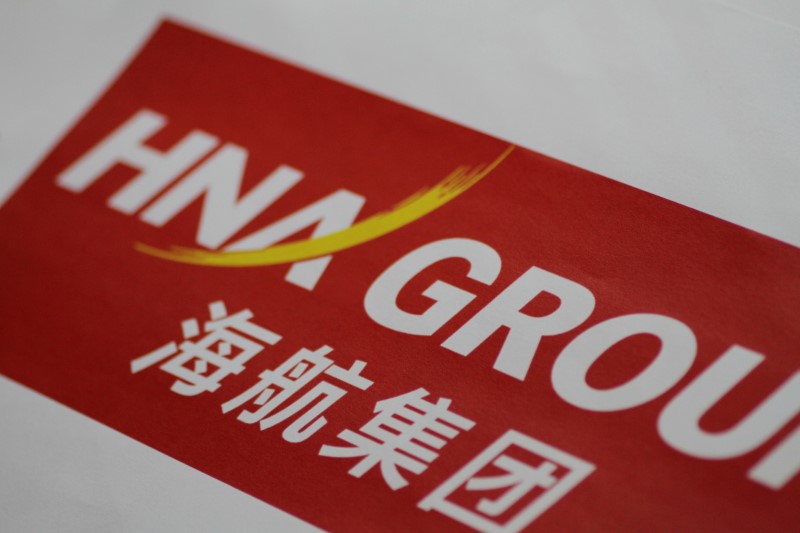(Bloomberg) -- Troubled Chinese conglomerate HNA Group Co. faces a crucial test -- avoiding its first public bond default.
Once a front-runner in China’s debt-fueled global spending spree, HNA is scheduled to repay a 1.3 billion yuan ($185 million) local bond Tuesday.
Earlier this month, HNA said it would halt trading of this bond from Dec. 6 till its maturity due to an unspecified “major event that has yet to be finalized”. It didn’t give any details. The suspended bond last traded at 97.55 yuan on Dec. 5.
HNA has periodically been in the news in recent years for missing payments, selling assets and struggling with debts that climbed to as high as 598.2 billion yuan.
Haikou Meilan International Airport, a major airport backed by HNA units on the southern Hainan island, has defaulted on two private onshore notes totaling 3 billion yuan and a $200 million dollar-denominated bond, according to data compiled by Bloomberg.
While HNA itself failed to make good on a 1.5 billion yuan privately issued note in July, the conglomerate has yet to miss a repayment on a public bond, according to Bloomberg calculations.
“The main concern is a lack of liquidity and the complex structure of the group that makes moving money within the organization difficult,” said Warut Promboon, managing partner at credit research firm Bondcritic Ltd. “However, we believe HNA has sufficient credit facilities to pay back bondholders should its creditors allow them to do so,” he said.
Calls to HNA’s office responsible for information disclosure went unanswered.
A bond due in 2021 from by HNA’s unit Hainan Airlines Holding Co. was up by 0.36 yuan to 88.99 yuan as of 10:35 a.m. Hong Kong time. Traders have been closely monitoring this bond as a gauge of broader sentiment about the conglomerate since HNA’s local note was suspended.
HNA shot to prominence between 2016 and 2017 after splurging more than $40 billion on acquisitions across six continents. The once little-known airline operator became the biggest shareholder of iconic companies such as Hilton Worldwide Holdings Inc. and Deutsche Bank AG (DE:DBKGn) as well as paying top dollar for high-end properties from Manhattan to Hong Kong.
The company and other equally acquisitive private firms have since come under pressure from Beijing to sell off assets due to concerns that their borrowing sprees could worsen the nation’s debt burden and destabilize its financial system.
